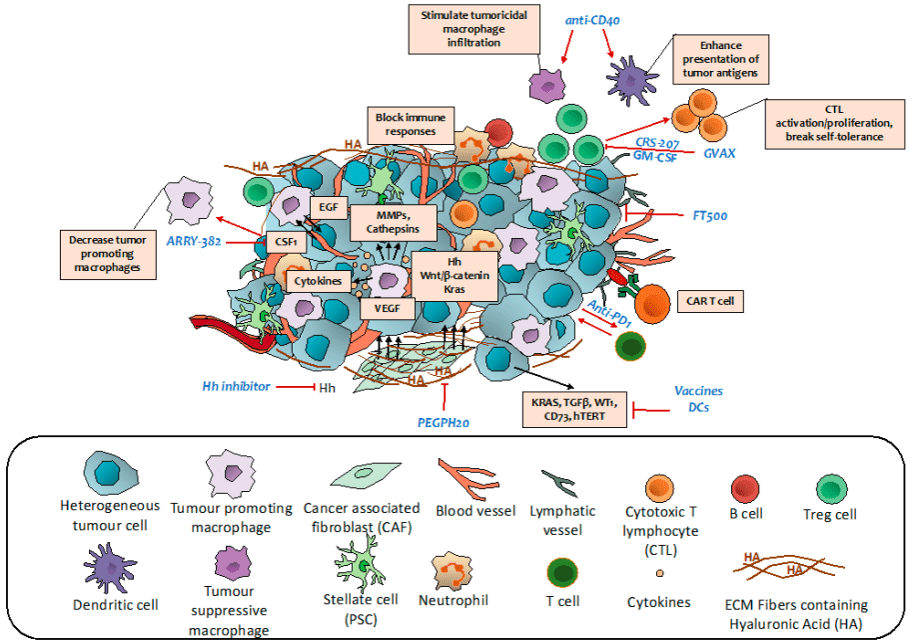NAA Services for Anti-Coactosin-Like Protein (CLP)
As a leading service provider in the field of biological research and antibody discovery, Creative Biolabs has successfully developed a series of innovative and diversified NAA (natural autoantibodies) platforms to provide fast and convenient services for our worldwide customers. Coactosin-like protein (CLP) is similar to coactosin, a member of the ADF/Cofilin group of actin-binding proteins. Here, we will briefly introduce the CLP autoantigen which shows potential as a target for pancreatic cancer diagnosis and therapeutic monitoring. Our professional team is optimized to help you get a milestone development in your NAA project.
Background of Anti-Coactosin-Like Protein (CLP)
Coactosin-like protein (CLP, or Cotl1), one of the numerous F-actin-binding proteins which regulate the actin cytoskeleton, is a human protein encoded by the COTL1 gene. CLP belongs to the actin-binding proteins ADF family, more specifically to the Coactosin subfamily. CLP acts to bind F-actin in a calcium-independent manner and also interacts with 5-lipoxygenase (ALOX5), leading to increased 5-LO activity during proinflammatory leukotriene biosynthesis. CLP is able to counteract the activities of capping proteins that retard actin polymerization. Moreover, CLP acts as a T-cell activator in the immune system, where it competes with the related protein, cofilin, for binding to F-actin. It then attenuates cofilin-mediated F-actin depolymerization to promote lamellipodial protrusion. CLP has the potential to play a role in the degradation or impairment of neuronal cells and their functioning and is identified as a potent cancer-associated antigen. As a self-antigen, CLP is overexpressed in pancreatic tissues in PC patients, as well as in PC cell lines, compared to normal pancreatic tissues, which could be an appropriate candidate for specific immunotherapy for a large number of PC patients.
The Role of Anti-Coactosin-Like Protein (CLP) in Pancreatic Cancer
Pancreatic cancer (PC) is a highly lethal disease with poor prognosis because early diagnosis is difficult and the tumor is relatively resistant to surgery, radiotherapy, and chemotherapy. The effective treatment of PC is critically relying on the diagnosis of the disease at an early stage, which still remains a big challenge. Therefore, new diagnostic and therapeutic methods are needed for this cancer. Immunotherapy may be a potential treatment because various immunotherapies seem to improve the prognosis of patients with pancreatic cancer.
CLP is also known for its direct, calcium-independent, interaction with 5-lipoxygenase, serving to up-regulate and modulate its activity. In HLA-A2(+) PC patients, a CLP-specific IgG antibody was detected in the sera but not in healthy donors, suggesting CLP may be useful for diagnosis and immunotherapy for PC. CLP also plays a critical role as an up-regulator of leukotriene A4 synthesis, a target for cancer prevention and therapy, attracting numerous interests in CPL for potential as a target antigen in PC.
 Fig.1 Targeting immune regulatory networks in pancreatic ductal adenocarcinoma patients.1
Fig.1 Targeting immune regulatory networks in pancreatic ductal adenocarcinoma patients.1
What We Can Do About NAA?
NAAs display a moderate affinity for self-antigens. They provide the first line of defense against infections, probably serve housekeeping functions and contribute to the homeostasis of the immune system. A wide spectrum of NAA products is available for your choice at Creative Biolabs. Aided by our well-established platforms and experienced scientists, we can provide comprehensive NAA services, from NAA detection, NAA profiling, to NAA epitope mapping.
Features of our Services
- Advanced technology with experienced scientists
- One-stop pipeline to save your time and energy
- High efficiency with high accuracy and specificity
- Best after-sale service
Reference
- Leroux, Cedric, and Georgia Konstantinidou. "Targeted therapies for pancreatic Cancer: overview of current treatments and new opportunities for personalized oncology." Cancers 13.4 (2021): 799.
Related Services:
- NAA Services for Anti-Calcium and Integrin Binding 1 (CIB1) Protein
- NAA Services for Anti-Mesothelin Antibody
- NAA Services for Anti-Ezrin
- NAA Services for Anti-ENOA1, 2 Antibody

